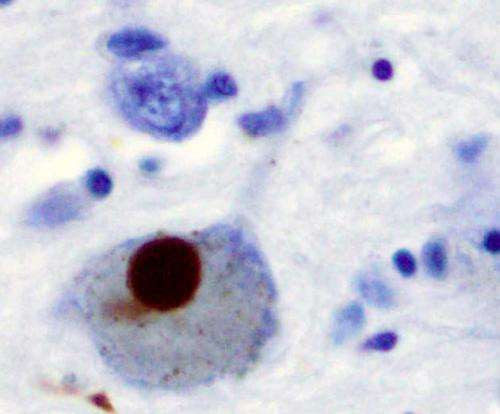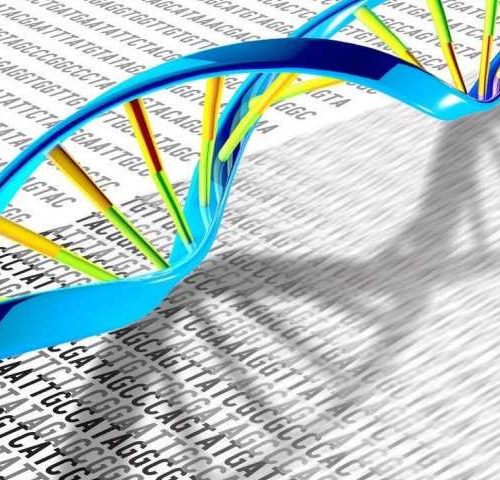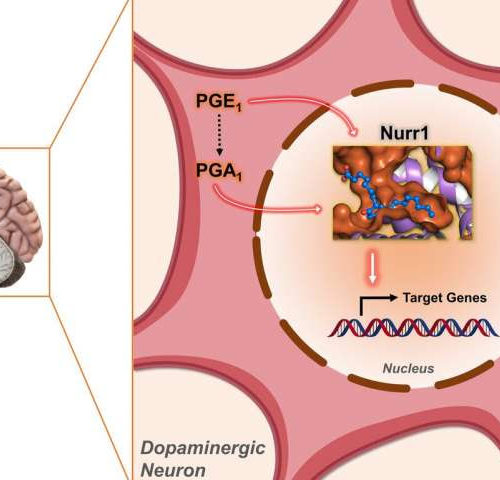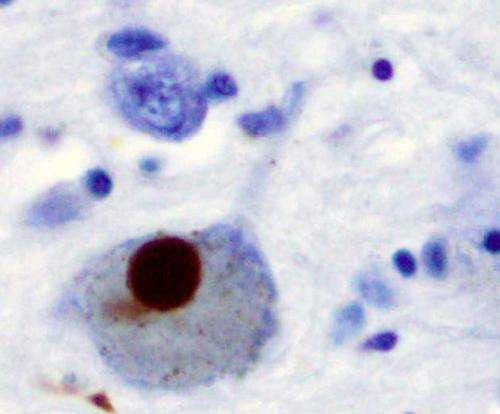by Jeff Hansen, University of Alabama at Birmingham Parkinson’s disease is a common, progressive and debilitating neurodegenerative disease. It currently cannot be prevented or cured. In 2003, Heiko Braak proposed that non-inherited forms of PD are caused by a pathogen in the gut. He hypothesized that the pathogen could pass through the intestinal mucosal barrier...
Tag: <span>Parkinson’s disease</span>
Lancet Neurology publishes results of AFFiRiS’ Phase 1 trial with PD01A in Parkinson’s
Vienna, Austria, June 18, 2020 – AFFiRiS AG, a clinical-stage biotechnology company developing novel disease-modifying specific active immunotherapies (SAITs), today announced that detailed results of the phase 1 clinical program with its lead candidate PD01 in early Parkinson’s disease (PD) patients were published in the peer-reviewed journal The Lancet Neurology. The results of the long-term...
Insight into protein misfolding could open up new approaches to treat Parkinson’s disease
by University of Cambridge Researchers have uncovered a link between the structure of the protein alpha-synuclein and its likelihood to misfold and aggregate. Alpha-synuclein aggregates are the hallmark of neurodegenerative disorders, such as Parkinson’s disease. Their findings, published today in Nature Communications, identify potential new therapeutic targets in the treatment of Parkinson’s disease. The human...
Innovation in Home CareTime for a New Payment Model
Much of the greatest innovation in industries other than health care deploys technology-enabled approaches to making services more accessible and convenient and lower cost or higher quality. For example, companies such as Blockbuster Video, which provided what seemed like essential services, was supplanted by Netflix, which offered on-demand, personalized viewing of videos from the convenience...
Genetic database provides rare disease clues and Parkinson’s hope
by Kate Wighton, Imperial College London Scientists have created the world’s largest publicly available database of genetic variants—changes in DNA that can sometimes lead to disease. The use of this resource, called the Genome Aggregation Database (gnomAD) and including information from over 140,000 people from across the globe, is described in a landmark collection of...
Molecular pair offers potential for Parkinson’s treatment, study finds
by Nanyang Technological University A promising molecular pair has offered hope that could lead to the development of a new treatment to slow down Parkinson’s disease, a study by Nanyang Technological University, Singapore (NTU Singapore) and Harvard University has found. Parkinson’s disease is the second most common neurodegenerative disorder after Alzheimer’s disease, affecting 7 to...
Nilotinib appears safe and affects biomarkers in Alzheimer’s disease clinical trial
by Georgetown University Medical Center A Georgetown University Medical Center clinical trial investigating the cancer drug nilotinib in people with Alzheimer’s disease finds that it is safe and well-tolerated, and researchers say the drug should be tested in a larger study to further determine its safety and efficacy as a potential disease-modifying strategy. The results...
New gut-brain link: how gut mucus could help treat brain disorders
by RMIT University Mucus is the first line of defence against bad bacteria in our gut. But could it also be part of our defence against diseases of the brain? Bacterial imbalance in the gut is linked with Alzheimer’s disease, autism and other brain disorders, yet the exact causes are unclear. Now a new research...
Scientists find evidence of link between diesel exhaust, risk of Parkinson’s
by Caroline Seydel, University of California, Los Angeles A new UCLA study in zebrafish has identified the process by which air pollution can damage brain cells, potentially contributing to Parkinson’s disease. Published in the peer-reviewed journal Toxicological Sciences, the findings show that chemicals in diesel exhaust can trigger the toxic buildup of a protein in...
Predictive models could provide more accurate detection of early-stage Parkinson’s disease
by York University How is your sense of smell? Do you find yourself frequently dozing off during the day or thrashing about during dreams? Often, early stage Parkinson’s disease does not present with typical motor disturbance symptoms, making diagnosis problematic. Now, neuroscientists at York University have found five different models that use these types of...








